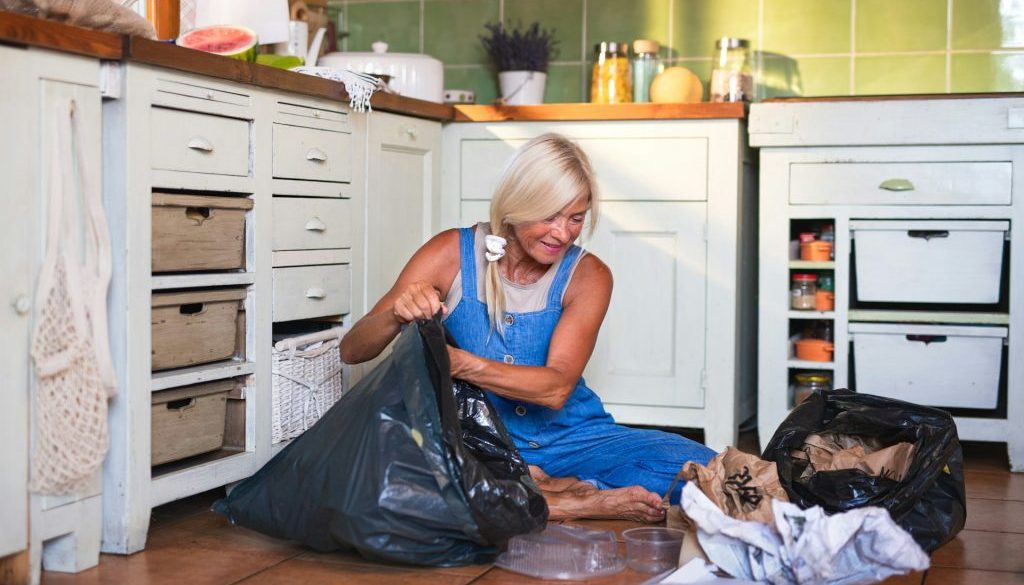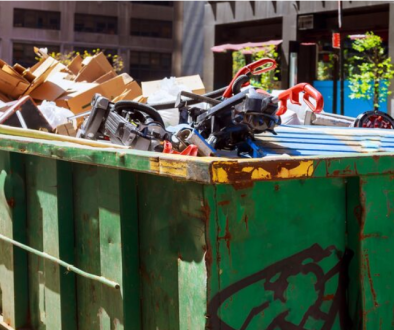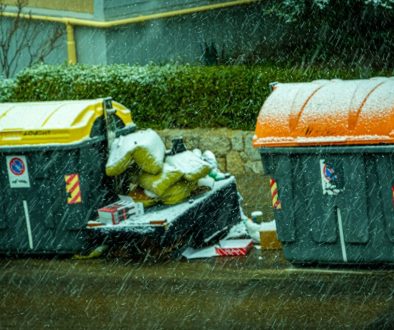Reducing household rubbish is an important way to take care of our environment. Every day, we produce waste that ends up in landfills, polluting the earth and wasting valuable resources. By making small changes in our daily routines, we can significantly cut down on the rubbish we generate and make a positive impact on the planet.
One of the easiest ways to manage waste is by following the principles of reduce, reuse, and recycle. By becoming more mindful of how much we consume, finding new uses for items, and recycling materials properly, we can lessen the amount of waste that goes to landfill. These practices not only help the environment but also save money and resources.
Another effective method is composting organic waste. Food scraps and yard waste can be turned into nutrient-rich compost that helps plants grow. This not only reduces rubbish but also provides a valuable resource for gardens. Choosing products with minimal and sustainable packaging can also make a big difference. Avoiding excessive packaging means less waste to deal with later.
It is also essential to dispose of hazardous waste safely. Many household items like batteries, paint, and chemicals need special handling to avoid harming the environment. Proper disposal ensures these dangerous materials do not end up in our soil and water.
By adopting these simple yet effective strategies, everyone can play a part in reducing household rubbish and promoting a healthier, cleaner environment.
Reduce, Reuse, and Recycle: Simple Practices to Cut Down on Household Rubbish
Reducing, reusing, and recycling are simple yet powerful ways to cut down on household rubbish. These practices help conserve resources, save energy, and reduce the amount of waste that ends up in landfills.
- Reduce:
– Be mindful of your purchases. Buy only what you need to avoid creating unnecessary waste.
– Choose products that come with minimal packaging. Bulk buying can also reduce packaging waste.
– Save energy and resources by repairing items instead of replacing them. This can apply to clothing, electronics, and furniture.
- Reuse:
– Find new uses for items you might otherwise throw away. Glass jars can be used for storage, and old clothes can be turned into cleaning rags.
– Donate usable items to charity shops or share them with friends and family.
– Use reusable bags, bottles, and containers instead of single-use plastics.
- Recycle:
– Separate recyclable materials such as paper, plastic, and glass from your rubbish. Make sure they are clean before placing them in the recycling bin.
– Familiarise yourself with your local council’s recycling guidelines to ensure you are recycling correctly.
– Participate in community recycling programmes and events that promote recycling awareness.
By implementing these simple practices in our daily lives, we can significantly reduce the amount of rubbish we produce and make a positive impact on our environment.
Composting: Turning Organic Waste Into Valuable Resources
Composting is an excellent way to manage organic waste and turn it into valuable resources for your garden. It reduces the amount of rubbish sent to landfills and enriches the soil with nutrients.
- What to Compost:
– Compostable items include fruit and vegetable scraps, coffee grounds, eggshells, tea bags, and yard waste like leaves and grass clippings.
– Avoid composting meat, dairy products, and oils, as they can attract pests and create bad odours.
- Setting Up a Compost Bin:
– Choose a compost bin or pile location that is convenient yet out of direct sunlight to maintain moisture balance.
– Start with a layer of coarse materials like twigs, followed by alternating layers of green waste (vegetable scraps) and brown waste (dry leaves).
- Maintaining Your Compost:
– Turn your compost regularly to aerate it and speed up the decomposition process.
– Keep the compost moist, but not too wet. If it becomes too dry, add some water, and if it’s too wet, add more brown waste.
– Over time, your compost will break down into a dark, crumbly substance that can be added to your garden soil to promote healthy plant growth.
Composting not only reduces household rubbish but also recycles nutrients back into the earth, supporting a sustainable and eco-friendly lifestyle. Through composting, we can transform waste into a valuable resource that benefits our gardens and the environment.
Choosing Sustainable and Minimal Packaging Options
Reducing household rubbish starts with making conscious choices about the products we buy. Opting for sustainable and minimal packaging can significantly decrease the amount of waste we produce. Here are some effective ways to choose better packaging:
- Buy in Bulk:
– Products sold in bulk often come with less packaging. This helps reduce the overall amount of waste from packaging materials.
– Use reusable containers for bulk purchases to further minimise waste.
- Choose Recyclable and Biodegradable Packaging:
– Select products packaged in recyclable materials like cardboard, glass, or aluminium. These materials can be recycled and reused multiple times.
– Look for biodegradable packaging that will break down naturally without harming the environment. Compostable packaging can be added to your compost bin.
- Support Brands with Eco-Friendly Packaging:
– Purchase from brands that prioritise sustainable packaging. Some companies use minimalistic designs to cut down on waste, and others use recycled materials.
– Avoid products with excessive packaging, such as individually wrapped items within a larger package.
- DIY Solutions:
– Make your own cleaning and personal care products using simple ingredients. Store them in reusable containers to avoid single-use plastic packaging.
– Choose fresh produce without packaging. Bring your own bags when shopping for fruits and vegetables to eliminate the need for plastic wrap.
By making informed choices and supporting eco-friendly brands, we can significantly reduce the packaging waste that ends up in our rubbish. These small steps collectively make a big difference in managing household waste.
Proper Disposal of Hazardous Household Waste to Minimise Rubbish
Proper disposal of hazardous household waste is essential to minimise the risk of environmental contamination and health hazards. Many common household items require special handling to ensure they are disposed of safely.
- Identify Hazardous Waste:
– Hazardous household waste includes items such as batteries, paints, solvents, pesticides, cleaners, and electronics.
– Check labels for warning signs and instructions on proper disposal methods.
- Use Designated Disposal Sites:
– Take hazardous waste to authorised disposal facilities or collection events. Many local councils offer special collection services for hazardous items.
– Do not throw hazardous waste in regular rubbish or landfill skips, as this can lead to pollution and harm wildlife.
- Follow Disposal Guidelines:
– Follow the instructions on the product label for disposal. Some items may require special steps for safe handling.
– Keep hazardous waste in their original containers and avoid mixing different types of waste. This prevents dangerous chemical reactions.
- Recycle When Possible:
– Some hazardous items, like batteries and electronics, can be recycled. Look for recycling programs that accept these materials.
– Proper recycling prevents hazardous components from ending up in landfills and allows valuable materials to be reused.
By recognising and correctly disposing of hazardous waste, we protect our environment and health. These practices ensure that dangerous materials are handled safely and reduce the risk of contamination.
Conclusion
Reducing household rubbish is a responsibility we all share. By implementing simple practices like reducing, reusing, and recycling, we can make a significant impact. Composting organic waste and choosing sustainable packaging further reduce our rubbish footprint. Proper disposal of hazardous waste ensures that we do not harm the environment and protect our health.
Every small action counts towards a cleaner and greener planet. Let’s start by making more mindful choices in our daily lives and encourage others to do the same. Working together, we can create a sustainable future for our children and generations to come.
If you are looking for efficient and eco-friendly ways to manage waste, consider using Enviro Skip Hire. Our skips make rubbish disposal simple and environmentally responsible. Contact Enviro Skip Hire today to learn more about our skip hire in Crewe and how we can help you reduce your household rubbish effectively.




